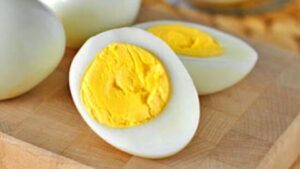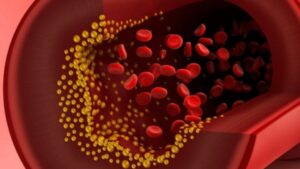How Many Calories Are In An Egg?
How Many Calories Are In An Egg? Is It Good To Eat A Lot Of Eggs?
Eggs are a staple in many kitchens due to their versatility and high nutritional value. But have you ever wondered how many calories are in one egg? If you’re curious about the calorie content of eggs and how to incorporate them into a healthy diet, this article will guide you through the facts, myths, and best practices surrounding eggs. Let’s dive into the details of how eggs can be a part of your balanced diet, and how to enjoy them safely.
1. How Many Calories Are in One Egg?
The calorie count of an egg varies depending on its size. According to the U.S. Department of Agriculture (USDA), an average egg weighing about 50 grams contains approximately 72 calories. However, the calorie count can change based on the egg’s size:
- Jumbo egg (63g): 90 calories
- Extra-large egg (56g): 80 calories
- Large egg (50g): 72 calories
- Medium egg (44g): 63 calories
- Small egg (38g): 54 calories
These values reflect the calorie count of raw eggs. When eggs are cooked, the calorie content might increase depending on the cooking method. For instance, a boiled egg typically contains around 78 calories, while frying an egg with cheese or oil can raise its calorie count to anywhere between 95 and 120 calories.
Moreover, there’s a significant difference between the calorie content in the egg yolk and the egg white. The yolk of a large egg contains around 55 calories, while the white part holds only about 17 calories.

2. Nutritional Components of Eggs
Eggs are not only low in calories but are also packed with essential nutrients. Here’s a closer look at the nutritional breakdown of an egg:
Protein
Eggs are an excellent source of high-quality protein, which is vital for building and repairing tissues, producing enzymes, and supporting immune function. One large egg provides around 6.28 grams of protein, with the egg white contributing approximately 3.6 grams. This makes eggs an ideal food for people looking to increase their protein intake.
Fats
Most of the fat content in eggs is concentrated in the yolk. A large egg contains just under 5 grams of fat, with about 1.6 grams being saturated fat. The yolk also contains healthy omega-3 fatty acids, which help reduce inflammation and lower the risk of chronic diseases such as heart disease, cancer, and arthritis.
Cholesterol
A large egg contains about 186 milligrams of cholesterol, which may raise concerns for some individuals. However, not all cholesterol is harmful. Cholesterol serves important functions in the body, such as producing hormones and vitamin D. Studies have shown that for most healthy individuals, consuming 1–2 eggs per day does not increase the risk of heart disease.
However, if you have diabetes or high cholesterol, it’s advisable to limit egg consumption to around 4–6 eggs per week and monitor your intake of other high-fat foods.

Carbohydrates
Eggs contain a minimal amount of carbohydrates, with one large egg providing only 0.36 grams. This makes eggs a low-carb, high-protein option for those following specific dietary plans like keto or low-carb diets.
Vitamins and Minerals
Eggs are rich in various vitamins and minerals. B-vitamins, such as vitamin B2 (riboflavin) and vitamin B12 (cobalamin), are especially abundant in them. These vitamins are necessary for both sustaining a healthy neural system and producing energy.
Eggs also include biotin, folate, choline, vitamin A, vitamin E, and vitamin D. Most of these nutrients are found in the yolk, while riboflavin is present in the white.
Eggs also offer essential minerals such as selenium, calcium, iodine, and phosphorus. Selenium acts as a powerful antioxidant that protects the body from damage caused by free radicals and reduces the risk of heart disease and certain types of cancer.
3. Is It Healthy to Eat a Lot of Eggs?
While eggs are a nutrient-dense food, moderation is key. Eggs contain a significant amount of cholesterol (approximately 200mg per egg), and it is recommended to limit dietary cholesterol to less than 300mg per day. For this reason, it’s best to consume no more than two yolks a day and limit your weekly intake to around three yolks. However, you can enjoy egg whites more liberally, as they are low in fat and calories while being high in protein.
People with hypertension, heart disease, or atherosclerosis should be particularly cautious when consuming eggs, especially the yolks. Combining eggs with vegetables or fruits can help balance cholesterol levels and promote overall health.
4. Key Considerations When Eating Eggs
To maximize the health benefits of eggs, it’s essential to avoid combining them with foods that could cause digestive issues or reduce their nutritional value. For instance:
- Avoid drinking tea with eggs: The tannic acid in tea can make eggs difficult to digest.
- Do not pair eggs with soybeans or soy milk: This can hinder protein absorption.
- Avoid eating eggs with foods like rabbit meat, persimmons, or pork brains: These combinations can cause indigestion.
- Refrain from frying eggs with garlic: This combination can produce harmful compounds.
It’s also important not to consume eggs that have been stored for too long or left overnight. To lower the risk of foodborne infections, make sure eggs are cooked all the way through..

5. How to Safely Eat Eggs
For some people, eggs can trigger allergic reactions. Typical signs of an allergy to eggs include:
- Nasal congestion
- Coughing or chest tightness
- Nausea, vomiting, or cramps
- Anaphylaxis (in severe cases)
- Hives around the mouth or other areas of the body
Additionally, consuming raw eggs carries the risk of salmonella infection, which can cause fever, cramps, and dehydration. To minimize the risk, it’s crucial to store eggs properly—refrigerate them after purchase—and cook them thoroughly. Eggs should reach an internal temperature of 160°F (71°C) to ensure safety.
If you prefer consuming raw eggs, opt for pasteurized eggs, which have been treated to kill bacteria without cooking the egg.
6. Tips for Using Eggs in a Weight Loss Diet
Eggs are low in calories and high in protein, which can help you feel full and reduce your overall calorie intake. Here are some tips for incorporating eggs into a weight loss diet:
- Eat boiled eggs: Boiling preserves the nutritional content of eggs while keeping the calorie count low.
- Avoid high-calorie additions: Limit the use of oils, cheese, and other high-calorie ingredients when preparing eggs.
- Consume eggs for breakfast: Starting your day with eggs can keep you feeling full for longer and help curb hunger throughout the day.
- Pair eggs with vegetables: Combining eggs with fresh vegetables or salads increases your intake of fiber, vitamins, and minerals, which can enhance the weight loss process.
- Drink plenty of water: Staying hydrated supports digestion and can help control your appetite.
It’s generally safe to consume up to two eggs per day, but limit your weekly intake to three days to avoid digestive discomfort.
7. Common Questions About Eggs
Is Eating Raw Eggs Beneficial?
Raw eggs are often consumed for their supposed health benefits, such as improving brain function, supporting healthy pregnancy, and strengthening bones. However, the risks of salmonella and poor nutrient absorption outweigh the benefits. Always consider pasteurized eggs if you prefer them raw.
Do Eggs Cause Weight Gain?
Eggs are nutrient-dense and help create a feeling of fullness, making them an excellent choice for weight management. A large egg contains only 78 calories. When eaten with vegetables, eggs can contribute to weight loss by reducing overall calorie consumption.
What Foods Should You Avoid Eating with Eggs?
While eggs are generally versatile, avoid combining them with:
- Persimmons
- Fish
- Pig brains
- Potatoes
- Garlic
- Soy milk
- Dairy
- Tea
In conclusion, eggs are an affordable, nutritious, and versatile food that can be easily incorporated into a healthy diet. By being mindful of how you prepare and consume them, you can enjoy their benefits while minimizing any risks. Whether you’re aiming to lose weight or maintain a balanced diet, eggs can be a great addition to your meal plan.
News










Related Posts






Search
Recent Posts
- EXCLUSIVE: New MasterChef Host Grace Dent Once CRITICIZED the Show and Took Jabs at Gregg Wallace – Will She STIR UP More Drama in the Kitchen?””
- Phil Collins, 73, Shares HEARTBREAKING Health Update That Has Left Genesis Fans Devastated – Is This the END of an Era?
- EXCLUSIVE: Tulisa Contostavlos Finally OPENS UP About the REAL REASON Her Romance with Bandmate Fazer Ended – What Happened Behind the Scenes?
- How to Master the Perfect Chicken Sunday Dinner at Home
- Beef Wellington Recipe
Recent Comments